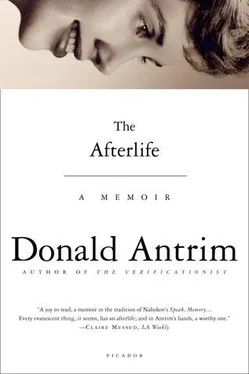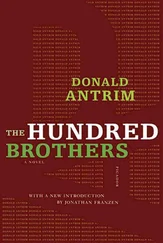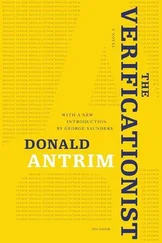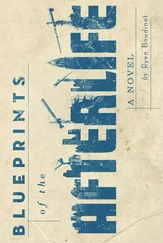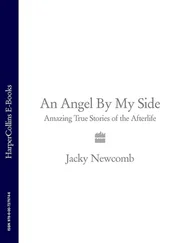We packed up the little house in Tallahassee. A moving van carried away our things. Before leaving for Virginia, I walked across the street and, standing in the grass beside the church steeple, wept over the friends I would never see again. We put Zelda Fitzgerald, our cat, in a cage in the backseat of the car, then climbed in ourselves and drove across the state line into southern Georgia and on from there through the successive landscapes that marked the stages of the journey north. We went through the Georgia pine stands, around broad, man-made lakes, and across red hills. We continued through the Carolinas, through fields planted with corn and tobacco, past neglected, rotting barns whose painted roofs advertised pecans and fireworks. Whenever my sister or I saw, looking out the car windows into the distant west, a big range of hills, we imagined that we had come to the Blue Ridge Mountains. The Blue Ridge belonged to our father’s world.
In Charlottesville, we unloaded into a house on Lewis Mountain Road, down the way from Memorial Gym and the university tennis courts. The house was not big. It was painted white, with a front door that I want to remember as red but which was probably also white. We had a narrow yard that sloped uphill in back; there was room to throw a ball, but not enough space to play a game. In the basement were broken walls partitioning unlit places that smelled as if they might open onto passageways running beneath the streets and houses, down into the earth. Above the basement, the kitchen was off-white and cozy, smaller than the kitchen at Fiddler’s Green, where we would move the following year. Every time we relocated — and we did so every year or two, as if life were a steeplechase through rented houses — we would go into the new rooms and paint the walls and uncrate the books and dust off the flower vases and sort the silverware and hang the pictures and roll out the rugs in a matter of days, as if in a hurry to produce a home that might be an improvement on the one that had come before, and in which we could forget or at least put in the past the unhappiness that had come before, knowing that once the chairs were arranged in the new living room and the beds in the new bedrooms had been made, it would come again.
A number of years before she died, my mother told me that soon after her second marriage to my father, she realized that the woman with whom he’d had his affair was still a presence. She told me that after we moved from Tallahassee to Charlottesville, she, my mother, had sometimes been greeted, during social gatherings at the homes of my father’s Virginia colleagues and friends, with questioning looks, as if the people she met were uncertain about whether she was really his wife.
Her rival was a poet who lived in a distant state. Several times, after I’d finished college and moved to New York, I came across a poem or group of poems by her. Standing in a magazine shop or a bookstore, I searched the lines for images, for a voice, that might connect me, however tenuously, to my parents in their youth. One day, I discovered a letter she’d written to my father. The letter was from a time when I was little. It was pressed between the pages of a paperback copy of Tom Stoppard’s Rosencrantz and Guildenstern Are Dead . I’d stolen the book from my father’s shelves before leaving home for boarding school, and I’d subsequently carried it to college and, from there, to New York. How had I never before seen this letter? Had I not read the play? I found the letter in the book in the 1980s, when I was living on the Upper East Side. I remember that I refused myself permission to open the envelope and look inside. The letter hadn’t been written to me; it didn’t belong to me; it wasn’t meant for me. Reading it would be unethical, maybe even immoral. Weeks went by — or months, it seems to me now — while I maintained a furtive attachment to its forbidden, unknown contents, which I absurdly hoped might offer me a bit of insight into my family’s history. I regarded the writer, who had played such a significant part in our troubles, as a kind of outcast relative. Could a piece of her lost mail help me understand what had happened to my mother and father?
I read the letter. I remember that it was nighttime. I was sitting on the sofa in my tiny apartment’s tiny living room. I opened Rosencrantz and Guildenstern Are Dead , took out the envelope, extracted and unfolded the pages inside, and began. I recall a passage describing a new green dress that the writer had worn to a party. Both dress and party were described in teasing, playful, overtly erotic language, language that makes clear her desire for my father’s adoration and jealousy. I felt guilty and embarrassed. Maybe I had expected the letter to contain literary chat of a sort that I imagine my father wishing he could share with my mother, a reference to, say, French poetry or new directions in criticism. I folded the love letter, stowed it back between the pages of the book, and replaced the book with the other novels and plays stacked in crooked piles underneath the platform sleeping loft in my bedroom. Twenty years and a half-dozen apartments later, I don’t know where Rosencrantz and Guildenstern has got to.
Most all of my mother’s stories — the angry tales she told me, before and after she got sober — about her life with my father contained, I think, a notion of self-improvement as a process of gathering insights into other people: if we name the faults of those who have hurt us, we will be shielded from pain; if we can collect evidence to justify our anger, we will overcome shame; if we pity our betrayers, we will not have been betrayed, mishandled, misunderstood, or left abandoned. But what happens when the ordeal of abandonment is — as I think it was for my mother, and for me with her — life itself?
Near the very end, in the years immediately before she was diagnosed with cancer, and even after she’d begun radiation, my mother dreamed that she and I would go on a trip together, a journey of sorts, the two of us in a car, touring the countryside, stopping at inns. She proposed this many times. “Would that be nice, Don?” she might ask, after naming a region — the Florida Keys or some wild stretch of the Pacific Northwest — in which we might travel around, talk about art, and get to know each other better.
“That might be nice,” I would say to her. My mother wanted to go on a honeymoon with me.
“Will you think about it?”
“Sure.”
“We could go in the fall.”
“ This fall?”
“Is that too soon?”
“I don’t know. Can we talk about it when the time is closer? It’s hard to see that far ahead.”
“Oh. Well, I know you have a lot to think about.”
“I guess I do.” Unhappily, I would imagine checking into a rural bed-and-breakfast or a surf-side cabana with my dying mother, who would humiliate me. She’d talk loudly at the dinner table, and treat the waiter poorly. I could picture myself glancing to the left and the right, wanting to hide or, failing that, apologize to everyone we met.
Whenever I imagine such a trip, I am inclined to remember one that we did take, in 1982 or 1983, when she was struggling to get sober. We’d met at her parents’ house in Black Mountain. At the end of our stay, I loaded her suitcase and mine into her station wagon, and we started the drive to Florida, where I would spend a few more days before returning to New York. We drove south through the mountains. Halfway home, in St. Augustine, we stopped for dinner. I remember that we parked the car in front of a white house, a Florida bungalow built, probably, in the 1930s or ‘40s. It featured louvered windows, a stone porch with a painted ceiling, and a flowering tree in the yard.
The sun was in the west. Sea smells were in the air. “Look at that pretty house, Don. I’ve always liked it here so much. I’d love to live in a house like that,” I remember her saying.
Читать дальше
